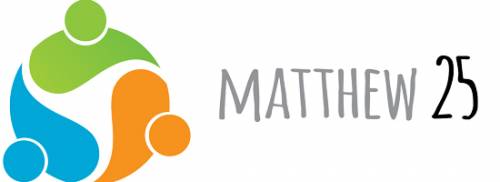Online course explores the challenges of the ‘pull yourself up by your bootstraps’ philosophy rampant in our society
by Melody K. Smith | Presbyterian News Service

When Nancy Salinger found out that church member John Hironymous ended up on the streets — living at a homeless encampment — she started bringing him food and water. This led to St. Mark’s Presbyterian Church in Lomita, California, starting a homeless encampment ministry — and saying yes to being a Matthew 25 church. (Mike Fitzer/Film 180)
LOUISVILLE — Stony Point Center (SPC) and Johnson C. Smith Theological Seminary (JCSTS) have once again teamed up to develop and offer an online curriculum to support the Matthew 25 vision. This second course is titled “Underpinnings of Systemic Poverty” and gives participants a lens through which they can better understand the underlying forces at work in communities that are disproportionately poor.
The first course addressed dismantling structural racism at a very appropriate time in our nation’s life as the fight for racial justice is in nearly every headline and news report, and many streets across the United States.

Julie Cox, ruling elder, associate executive presbyter and associate stated clerk for the Presbytery of New Harmony and trustee for JCSTS, said she participated in the first course for very specific reasons — “to not just be a good ally or co-conspirator, but to be a good ancestor.”
This second course will offer Bible studies by Nicholas Johnson, pastor of Raritan Valley Baptist Church in Edison, New Jersey. Johnson has studied at the Newark School of Theology since he was a high school student, has a Master of Divinity degree from Princeton Theological Seminary and is pursuing a doctorate in early Christianity and the New Testament from Drew Theological School.
Additional content providers include:
- Dr. Elizabeth Hinson-Hasty, professor of theology at Bellarmine University and author of “The Problem of Wealth: A Christian Response to a Culture of Affluence” (Orbis Books, 2017).
- abby mohaupt, director of GreenFaith’s Green Seminaries initiative and senior advisor for education and training, and director of Fossil Free PCUSA.
- Valéry Nodem, associate for international hunger concerns with the Presbyterian Hunger Program of the Presbyterian Mission Agency and former coordinator of Joining Hands RELUFA Network and Cameroonian human rights lawyer.
“I realize there is much I don’t know about these challenging topics, but what I do know is there is an intersectionality of poverty and racism,” said Cox.
This course is open to anyone, but based on Cox’s experience, she recommends everyone. “This work requires buy-in from everyone and it is a perfect group project, not just within one church but maybe with several churches within a community or presbytery.”

Those considering registering are also encouraged to invite church members, family and friends to register individually in order to establish a familiar learning community where new ideas can be processed and new behaviors practiced.
There is a sliding scale of $40 to $160 for the four-week course — however, no one will be turned away for inability to pay. Those who have experienced homelessness, job loss or financial instability are encouraged to register at no cost in recognition that they are likely to be a “teacher” as much as a “learner” in this space.
“These courses are so accessible on many levels,” said Cox. “They fit into our social distancing reality, affordable and a manageable time commitment.”
All course offerings in 2020 will be offered online, with two different learning formats offering participants the option of participating with others in weekly online sessions or engaging the material independently on the participants’ time. Each of these four courses is designed to build on the one prior. The course will integrate a broad and comprehensive reading of biblical text and a practice of theological reflection.
“There will be ‘homework’ each week,” said Rick Ufford-Chase, co-director of SPC. “It will include reading, podcasts, videos and personal journaling. And I will offer a weekly ‘preceptor’s session’ to support students who would like help with engaging the course material.”
To facilitate community learning and growth, interested participants are encouraged to register in groups of three or more from the same community/church/presbytery in order to support one another in processing new ideas and encouraging shared action in their faith community.

Please consider registering now for “Underpinnings of Systemic Poverty,” which will begin on Monday, Sept. 21. To learn more about these classes, visit presbyterianmission.org/matthew-25/curriculum.
Matthew 25:31–46 calls all of us to actively engage in the world around us, so our faith comes alive and we wake up to new possibilities. Convicted by this Scripture passage, both the 222nd and 223rd General Assemblies (2016 and 2018) exhorted the Presbyterian Church (U.S.A.) to act boldly and compassionately to serve people who are hungry, oppressed, imprisoned or poor.
![]() You may freely reuse and distribute this article in its entirety for non-commercial purposes in any medium. Please include author attribution, photography credits, and a link to the original article. This work is licensed under a Creative Commons Attribution-NonCommercial-NoDeratives 4.0 International License.
You may freely reuse and distribute this article in its entirety for non-commercial purposes in any medium. Please include author attribution, photography credits, and a link to the original article. This work is licensed under a Creative Commons Attribution-NonCommercial-NoDeratives 4.0 International License.
Categories: Matthew 25
Tags: johnson c smith theological seminary, matthew 25, poverty, stony point center
Ministries: Matthew 25 in the PC(USA): Join the Movement